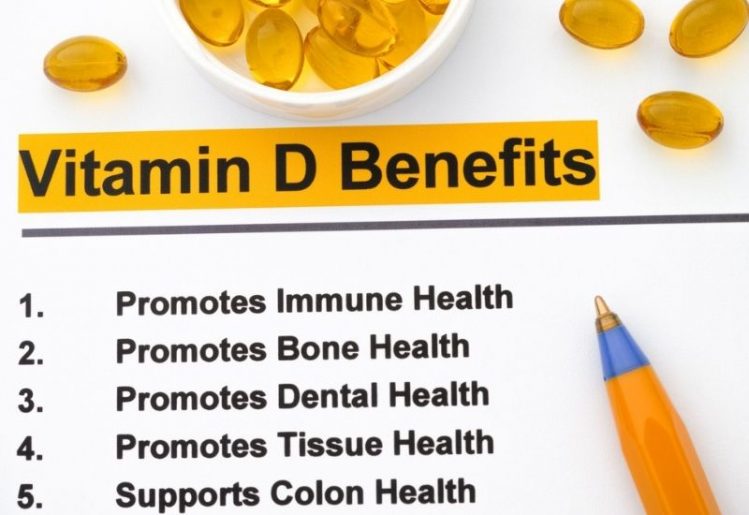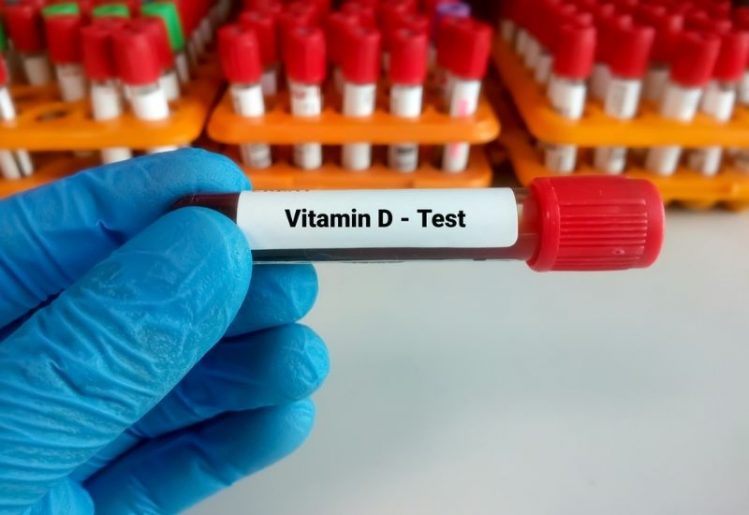Vitamin D2 and Vitamin D3: What's the Difference?
While it's known that vitamin D is essential for health, there are important differences between vitamin D2 and vitamin D3. Being aware of these differences is of utmost importance when seeking to improve your health.
What is Vitamin D?
 Primarily, vitamin D is a nutrient that helps cells in the body absorb other nutrients. This makes vitamin D an essential nutrient for your continued health, but particularly in helping to maintain strong bone density. That's because bone strength and growth relies upon calcium for nourishment, but bones can't absorb calcium directly. When your body has a sufficient supply of vitamin D, this nutrient serves as a bridge that allows the bones to absorb calcium efficiently.
Primarily, vitamin D is a nutrient that helps cells in the body absorb other nutrients. This makes vitamin D an essential nutrient for your continued health, but particularly in helping to maintain strong bone density. That's because bone strength and growth relies upon calcium for nourishment, but bones can't absorb calcium directly. When your body has a sufficient supply of vitamin D, this nutrient serves as a bridge that allows the bones to absorb calcium efficiently.
Additionally, vitamin D is a neuroprotective agent that acts as both an antioxidant and an anti-inflammatory agent. This means a sufficient supply of vitamin D will help promote optimal brain cell activity, ensure muscle health and support a strong immune system. The nerves throughout your body also need vitamin D to successfully carry messages to your brain from various parts of the body.
During an infant's first year of birth, only 10 mcg of vitamin D is needed daily, but that vitamin D requirement rises to 15 mcg after those first 12 months. This requirement remains consistent until individuals reach 71 years of age, at which time 20 mcg of vitamin D daily is recommended throughout the rest of their lives. This can be a challenge in that the best source of vitamin D is sunlight, yet unprotected exposure to the sun raises the risks for skin cancer. Fortunately, there are other available sources of vitamin D, which we will discuss momentarily.
How Do Vitamin D2 and Vitamin D3 Differ?
Vitamin D exists in multiple forms, two of the most common being vitamin D2 and vitamin D3. Before you see out additional sources of vitamin D, it's important to understand how D2 and D3 differ. These two types of vitamin D have different molecular compositions and they're derived from different sources.
Vitamin D2 is also called D2 ergocalciferol, while vitamin D3 is known as D3 cholecalciferol. Vitamin D2 is primarily obtained from plant-based foods, while vitamin D3 can be found in meats and other animal-based foods. Even though the nutrients are derived from different sources, they are similar in most ways and researchers have found that both D2 ergocalciferol and D3 cholecalciferol raise the vitamin D levels in the body.
Although both forms of vitamin D can be helpful, vitamin D3 cholecalciferol seems to have a more significant effect on the body. This particular nutrient produces higher levels of vitamin D in the body, and the effects are longer lasting than those resulting from D2 ergocalciferol. In a recent study, researchers found that increasing intake of vitamin D3 in subjects over a five week period had a more profound effect on vitamin D levels within the body than increasing vitamin D2 intake by the same ratio over the same period of time.
Researchers hope to undertake more studies to determine how the two different forms of the vitamin affect overall health. They also want to examine whether or not D2 ergocalciferol and D3 cholecalciferol produce health differences based on age, gender or other differentiating factors. In the meantime, alternative sources of these nutrients can help anyone increase their vitamin D levels without risking excessive sun exposure.
What Are Some Natural Ways to Increase Vitamin D in Your Body?
Besides sun exposure, there are a few reliable ways to increase your body's vitamin D levels.
Take a Dietary Supplement
You can boost your vitamin D levels with a high quality supplement, such as Vitachron Female or Vitachron Male. These high-quality supplements provide the body with additional D3 cholecalciferol for longer lasting effects. While recent research has linked vitamin D to better sleep, you'll better enjoy its effects when you take vitamin D in the morning or early part of the day. This is when the body is more efficient in absorbing the nutrient. Additionally, you'll be less likely to forget your dose if you take it along with with a healthy breakfast.
Include Sources of D3 Cholecalciferol in Your Diet
 Typically, seafood is the best food source of D3 cholecalciferol. For example, a single tablespoon of cod liver oil contains up to 170 percent of the daily recommended value for this nutrient. A three-ounce serving of rainbow trout contains 81 percent of the vitamin D you need daily, while a similar serving of salmon contains 71 percent of the recommended daily value. Two sardines and one egg each contain 6 percent of the recommended value, while three ounces of beef liver or tuna contain 5 percent of the recommended daily dose of this nutrient.
Typically, seafood is the best food source of D3 cholecalciferol. For example, a single tablespoon of cod liver oil contains up to 170 percent of the daily recommended value for this nutrient. A three-ounce serving of rainbow trout contains 81 percent of the vitamin D you need daily, while a similar serving of salmon contains 71 percent of the recommended daily value. Two sardines and one egg each contain 6 percent of the recommended value, while three ounces of beef liver or tuna contain 5 percent of the recommended daily dose of this nutrient.
Include Sources of D2 Ergocalciferol in Your Diet
You can increase your intake of vitamin D2 by consuming more plant milk, such as milk derived from almonds, oats and soy. Additionally, you can drink orange juice to get more of this form of the nutrient. Fortified cereals also contain higher amounts of vitamin D in this form, so eating a hearty breakfast will help you boost your vitamin D levels each day. Mushrooms and yeast are more good sources of vitamin D, since they require sunshine to grow.
Eat More Dairy
In general, dairy products are also excellent sources of vitamin D. This is especially true with products that are made with fortified milk, such as yogurt and pudding. You can also eat cheeses and eggnog, which provide good amounts of vitamin D as a result of the milk used to manufacture them.
If you're concerned that you're not getting enough vitamin D, you should consult your doctor. A simple blood test can determine whether you should start taking a vitamin D supplement or increase your intake of certain foods. Before making any dietary changes, it's a good idea to consult your doctor to avoid any adverse reactions that may otherwise occur.





